【AI考】AIのフェーズ2? 汎用AIの開発はどこまで進んでいるのか?
いろいろ世間を騒がせているAIだが、実際のところどこまで進んでいるのか知りたい。そう思っていたら紹介するのに手頃な記事を見つけた。
混乱するAIのイメージ
 記事はこんな具合に始まる。
記事はこんな具合に始まる。
人の仕事が奪われるとか、無用クラス(byハラリ)が生まれてベーシックインカムが現実化するとか、ネガティブな話題に事欠かないのがAI回りだ。人の不安を煽ることで儲けようとする人間は少なくない。
その一方で楽観的な見解も多い。たとえば、数個のヒントを与えれば猫を猫と認識できるAIがある。でも知能は人間の幼児レベルだ。
ところが自動運転や高度な医療診断ができるAIはどうだ?実用化は先だというものの、機能的にはすでに完成しているともいわれ、その能力は完全に人間を超えている。
どっちが本当のところなのか?
AI開発はフェーズ2に移行した
ここからは原文を併せて見ていこう。これは今年のGoogle I/Oで開かれたセッションの要約記事になる。回答者はグーグルの著名なAI研究者二人。
グーグルが年一回開催する開発者向け会議。I/Oはinput/outputの略であるとともに、グーグルのモットー “Innovation in the Open” の短縮形でもある。
たとえば、今年のGoogle I/Oで発表された主な新サービスやコンセプトについては以下の記事に詳しい。
Figuring out what’s possible today, when it comes to artificial intelligence, is a full-time job in and of itself. Which is why it’s important to start with a fundamental question.
Fei Fei Li, Chief Scientist of Machine Learning and Artificial Intelligence for Google Cloud, says that question is:
Can machines think?
The answer today, according to Google, is a resounding no. When asked if solving image recognition was enough for her to believe we’re on the way to machines that truly think, Li simply says “No, that’s not enough.”
AIはいま何ができて何ができないのか、それを調べるだけでも一日仕事になる。そうであれば大事なのは、まず基本を押さえておくことだろう。たとえば―
機械は思考できるのか?
グーグルのリー・フェイフェイ氏の答えはこうだ。
「グーグルの見解では、答えは断然ノーだ」。
では、画像認識能力をもつAIは思考能力をもっているのか?
「それでは不十分で、考えているとはいえない」とリー氏はいう。
It seems we’re nowhere near artificial general intelligence (AGI), or machines that equal or surpass humans in our ability to think, process, predict, examine, and learn.
Greg Corrado, Principle Scientist at Google and co-founder of the Google Brain program, was asked if we’re close to AGI, and his response sums up what many in the community are thinking:
I really don’t think so. My feeling is: okay we finally got artificial neural networks to be able to recognize cats, and we’ve solved this holy grail problem of image recognition, but that’s only one small sliver, a tiny sliver, of what goes into something like intelligence. We haven’t even scratched the surface. So to me, it’s really just a leap too far to imagine that, having finally cracked pattern recognition after decades of trying, that we would then be on the verge of artificial general intelligence.
The problem is the same for Google’s top researchers as it is for laymen: we’re watching as a technology that was little more than a hobby for cognitive science researchers seven or eight years ago becomes as important to the core development of all technologies as networking is. And, if you believe the experts, in five to ten years machine learning will be as important as electricity.
汎用人工知能(AGI)とは人間と同等か人間以上の思考・処理・予測・検証・学習能力をもつAIのことをいうが、現状、その実現は夢のまた夢ということだ。
それでも、AGIの実現の感触はどうか、グレグ・コラード氏にきいてみた。彼の答えは専門家の多くを代表する見解と思われる。
「まったくそう思いません。わたしの感触では、猫を認識できる人工ニューラル・ネットワークは出来た。画像認識の難問もクリアした。でも、それは知性という未知の探求領域の、ほんの小さなとっかかりに過ぎない気がします。表面をちょっと引っ掻いたくらい。パターン認識の解決にさえ数十年を要しました。ましてや、AGIなど話が飛躍しすぎています」
生体の神経回路網との混同を避ける場合には、人工ニューラル・ネットワーク(Artificial Neural Network)ともいう。人間の脳内の情報処理機構を模した人工知能向けの開発基盤。
シナプスの結合によりネットワーク化された人工ニューロン(情報処理ノード)が、シナプスの結合強度を高めて、問題解決能力を引き上げる。
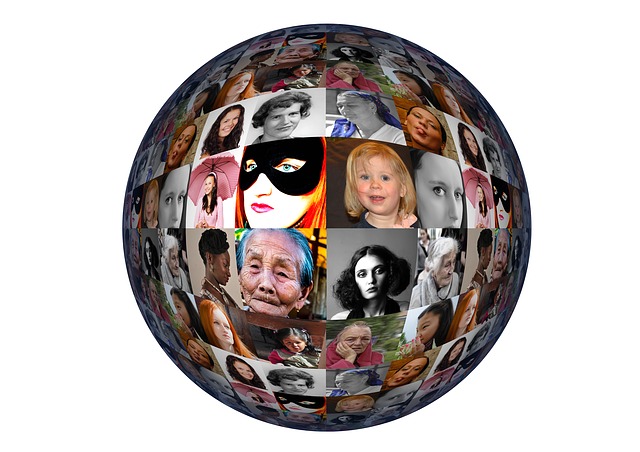
ウォールド・ガーデンは流行らない No more walled gardens
Despite what pundits and so-called experts claim, deep learning doesn’t always happen in a magical void. While some refer to neural networks as ‘alchemy,’ others have a very different view. According to Corrado:
There’s this pathology that AI or deep learning is a black box, but it really isn’t. We didn’t study how it works because, for a long time, it really didn’t work well. But now that it’s working well, there are a lot of tools and techniques that go into examining how these systems work.
And this means that the only way forward is through open source algorithms, equal opportunity access to training data sets, and better tools for everyone. Corrado continues:
It’s critical that we share as much as possible about how these things work, I don’t belive these technologies should live in walled gardens but instead we should develop tools that can be used by everyone in the community … The same tools that my applied machine learning team uses to tackle problems that we’re interested in, those same tools are accessible to you to try to solve the same problems in the same way.
事情通やいわゆるエキスパートが主張するのとは違い、ディープラーニングは何もないところから出てくる魔法ではない。ニューラル・ネットワークを「錬金術」などという人があるが、それにほとんど同調しない人もいる。コラード氏はいう。
「AIやディープラーニングがブラックボックスだとする考えは一種の病気です。実際は違うんです。長い間仕組みを学ぶ人がいなかったのは、単にうまく動かなかったからで、いまはうまく動くようになったので変わりました。システムの仕組みを調べるツールやテクニックはいくらでもあります」
つまり、今後の研究はオープンソースのアルゴリズムを通じて行わるということだろう。誰でも検証用のデータセットが入手でき、優れたツールを使える。コラード氏はこう続けだ。
「仕組みに関する技術はなるべく多くを共有するのが大事です。技術をウォールド・ガーデンに囲い込む時代ではありません。むしろ専門家の誰もが使えるツールを開発すべきだと思います。たとえば、うちのチームが機械学習の問題解決に使ったツールがありますが、それは誰もが同じ問題を解決できるよう公開しています」
Gated Communityともいう。「壁に囲まれた庭」とは、事業者が管理する閉鎖環境内での自由なサービス取引を意味する。わかりやすい例は、かつて一世を風靡したNTTドコモのiモード。転じて、閉鎖的な研究開発環境を指す。
未来を制するのはケンタウロス、殺人ロボットではない
The future is centaurs not killer robots
The future, according to these top researchers, is a world where AI augments nearly everything people do — people plus machines, not people or machines. It’s easy to see that blueprint in Google’s plans – whether you buy in to the corporate message or not is up to you.
But, much like the bursting of the dotcom bubble, we’ve had our child-like optimism and innocence crushed in the wake of the Cambridge Analytica scandal. AI runs on data, and that data belongs to humans, not companies.
The future of AI is unwritten. The field of AI is simply too nascent for anyone to predict what’ll happen next. At the same time, however, there’s more than half-a-century of work in the field indicating that AI is the future of all technology.
Corrado and Li called this “phase two,” after 60 years of development in the field of artificial intelligence they, and their peers around the world, are just getting started.
二人のトップ研究者によれば、AI研究は「人か機械か」の段階から「人プラス機械」の段階に移り、今後はAIが人の能力を増強する世界になる。グーグルの描く青写真を買う買わないは読者の自由だ。
実際、ケンブリッジ・アナリティカが起こした一連のスキャンダルのおかげで、AIに関する子どもじみた楽観主義や無知は、ドットコムバブルのように崩壊した。AIはデータがあって初めて機能する。そのデータは一企業のものではなく、社会全体のものである。
AIの未来は誰にもわからない。AI分野はまだ黎明期にあり、次がどうなるか予測は無理だ。しかし、AIが未来技術の決め手であることは過去半世紀以上にわたる研究実績が示している。
二人はこれをAI研究の「フェーズ2」と呼ぶ。60年の助走期間を経て、世界のAI研究者はようやくスタートラインに立ったのである。
ギリシャ神話に登場する半人半馬の英雄。強壮さで名をはせたスキタイ軍人(Scythian warrior)の人馬一体の戦いぶりがモデルになっているといわれる。ここでは人間と動物(AI)が力を合わせて事を成し遂げる比喩として使われている。殺人兵器はあくまで人間に使役される機械。
フェイスブックなどソーシャルメディアから不正入手した個人情報(ビッグデータ)を悪用し、米大統領選挙や英EU脱退投票の投票結果に影響を及ぼしたとされる事件。ケンブリッジ・アナリティカはすでに破綻申請している。

フェーズ2とはAI開発の本格化の意味
AI界全体のことはわからないが、少なくてもグーグルの現場レベルではAGIなど、まだとても無理というニュアンスだ。考える能力さえ不十分だという。
そうなのであれば、フェーズ2とは研究開発が本格化する段階という意味に過ぎない。何か画期的な進展があったのではないわけだ。
インターネットを含め、過去の技術革新は軍事技術の民間転用が主流だったが、AIについてはどうなるのだろう。

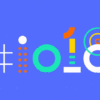


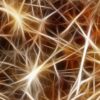
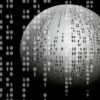
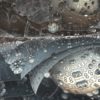
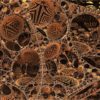

ディスカッション
コメント一覧
まだ、コメントがありません